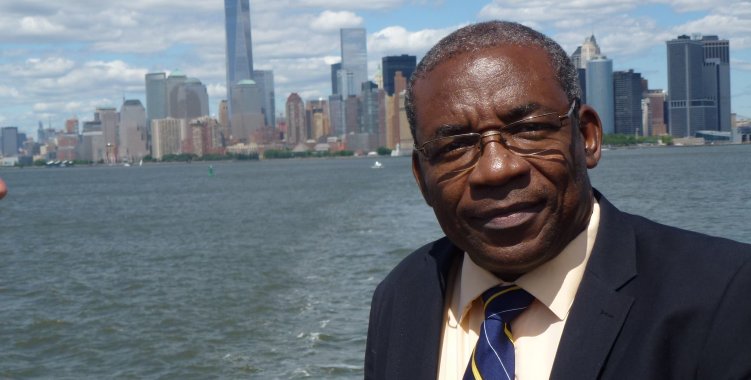"Equato-Guineans are succumbing like flies to the disease, deaths are rising every day, there is a total lack of information and the government's figures are contradictory to the reality we all live in. There are doctors who, without protection, run from the infected because they are also afraid of death," Wenceslao Mansogo said in an e-mail interview with the Lusa agency from Equatorial Guinea.
The doctor, who lives in Bata, the second largest city in Equatorial Guinea, located on the continental part of the country, believes the situation has "everything to get worse.
Equatorial Guinea registered the first case of the new coronavirus on 14 March and the first death on 22 April. At present, official figures show 1306 cases and 12 deaths, but these figures have not been updated for several days.
"The first death revealed many aspects of this struggle: poor preparation and uncoordination of the Technical Committee for Surveillance and Response, uselessness of the green numbers and lack of preparation of public hospitals," he said.
"Hospital staff received no training or personal protective equipment, while the general population continued to behave as if nothing had happened. And the epidemic grew rapidly," he added.
As a result, the doctor continued, many health professionals became infected, which led to restrictions "to a minimum" on the activity of the Bata Regional Hospital and two health centers because they were considered "coronavirus outbreaks.
The doctor, who is also responsible for the international relations of the Convergence for Social Democracy in Equatorial Guinea (CPDS) party in the opposition, speaks of an "uncoordinated, casuistic and chaotic" and highly politicized management of the pandemic that copies measures from other countries.
"People feel bad, they call one of the freephone numbers and, if they answer, they promise to go in a day or two. If they do go, they take the person's sample and if it's positive, they come back to control the contacts. Positive people are taken to the quarantine sites set up by the government and the seriously ill are transported to the designated hospitals," he said.
But according to Wenceslao Mansogo, as people know that, in general, nobody answers the phones, they don't even call, and they go directly to the hospitals, which, for the most part, don't accept patients suspected of being infected by the new coronavirus.
"The central hospital has isolation rooms where you wait for the samples to be taken, but there are so many patients that the teams are saturated and both those who test positive and those who wait for the result are left there," he described.
The doctor, who runs a private medical centre in Bata, the L'Espoir clinic, says he's never received instructions or support from health authorities on how to deal with covid-19 cases.
"Once we called the freephone number of the Technical Committee to Fight Coronavirus because of a suspicious case and we had to call the Minister of Health for the technical team to come and take the sample," he said.
Wenceslao Mansogo said that the centre he runs does not have an adequate structure to handle covid-19 cases, so all patients who test positive are referred to that committee.
The doctor acknowledged that the authorities have taken the main preventive measures such as closing borders, confining cities, banning conurbations and closing public establishments, but said they are "not being complied with properly".
The doctor also denounced the lack of resources to combat the pandemic.
"The main obstacle is funding and its management. Clearly there are not enough means," he said, adding that the government had announced a contribution of 5 billion CFA francs and asked the population to contribute to the effort to combat the disease.
"Besides not knowing whether this money has really arrived, the sum is derisory in the face of the enormous challenge that an effective fight against the coronavirus represents," noted Wenceslao Mansogo, compared to one billion CFA francs made available by Senegal, Ghana's 100 million dollars and the nearly 200 million euros from Spain, the country's former colonizing power.
Equatorial Guinea is the third largest oil producer in sub-Saharan Africa, after Nigeria and Angola, with production of 200,000 barrels per day, and has one of the highest per capita incomes in Africa ($19,500), yet most of the population live in poverty or even extreme poverty.
The country, which since 2014 has been a member of the Community of Portuguese Speaking Countries (CPLP) has been governed for over 40 years by President Teodoro Obiang's authoritarian regime.
In Africa, there are 4601 confirmed deaths in more than 162 thousand infected in 54 countries, according to the most recent statistics about the pandemic in that continent.
On a global level, according to an assessment by the AFP news agency, the covid-19 pandemic has already claimed more than 382,000 lives and infected more than 6.4 million people in 196 countries and territories.
More than 2.7 million patients have been considered cured.







